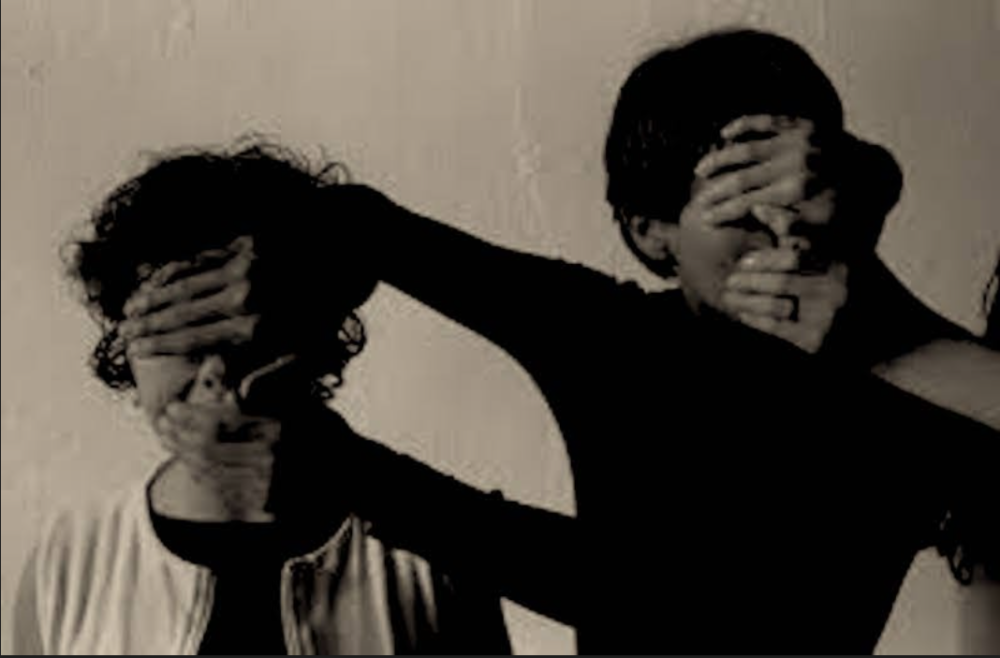
I am answering a question that was asked to me by one of my clients.
Is there a civil legal remedy for those who suffer serious harm to their physical or moral integrity at the hands of their spouse or another cohabitant?
There he is.
Article 342 bis of the Civil Code states that, «when the conduct of the spouse or other cohabitant causes serious harm to the physical or moral integrity or to the freedom of the other spouse or cohabitant, the judge, upon request of a party, may adopt by decree one or more provisions referred to in art. 342 ter cc».
Provision of art. 342 ter of the Civil Code
- With the decree referred to in Article 342-bis, the judge orders the spouse or cohabitant who has engaged in the prejudicial conduct to cease the same conduct and orders the removal from the family home of the spouse or cohabitant who has engaged in the prejudicial conduct, also prescribing him, where necessary, not to approach the places habitually frequented by the applicant, and in particular the place of work, the home of the family of origin, or the home of other close relatives or other persons and in the vicinity of the places of education of the couple's children, unless the latter does not have to frequent the same places for work reasons.
- The judge may also order, where necessary, the intervention of the social services of the territory or of a family mediation center, as well as of associations whose statutory purpose is the support and reception of women and minors or other subjects who are victims of abuse and mistreated; the periodic payment of an allowance in favor of cohabiting persons who, as a result of the provisions referred to in the first paragraph, remain without adequate means, establishing methods and terms of payment and prescribing, if necessary, that the sum be paid directly to the person entitled by the employer of the obligated party, deducting it from the remuneration due to the latter.
- With the same decree the judge, in the cases referred to in the previous paragraphs, establishes the duration of the protection order, which starts from the day of its execution. This cannot exceed one year and can be extended, upon request of a party, only if there are serious reasons for the time strictly necessary.
- With the same decree the judge determines the methods of implementation. If difficulties or disputes arise regarding the execution, the same judge provides with a decree to issue the most appropriate measures for the implementation, including the assistance of the police force and the health officer.
The family protection order is the tool offered to the civil judge to impose restrictions on the personal freedom of the perpetrator of family abuse, albeit for a limited period of time.
The purpose is to offer rapid and effective protection to the weakest subjects (women, minors, disabled and elderly), against abuse and violent behavior carried out by subjects in a position of strength, even only physical, within the family. The family should protect its members but sometimes it can become a hostile and dangerous environment for the physical and psychological integrity of the subjects who are part of it. It is therefore necessary to protect the victims.
This remedy was introduced by Law no. 154/2001 which determined the insertion into the Civil Code of the articles 342 bis and 342 ter of the Civil Code mentioned above. Moreover, I have reported them in full because they are very clear.
The same law also regulates the procedural forms for requesting and applying protection orders.
Furthermore, the Constitutional Court, with the ruling of 5 November 2015 n. 220, clarified that criminal and civil measures concur without necessarily excluding each other.
The purpose, as mentioned, of protection orders is to interrupt situations of disturbed cohabitation, but above all to prevent the continuation of violent behavior in the domestic sphere and presupposes that the victim and the person to whom the violent behavior is attributed live in the same house. This measure has the function of anticipating as much as possible the protection of the weak person, allowing him or her to remove the person who has engaged in prejudicial conduct, even before this takes on criminal significance.
But who can request a protective order?
The application can be submitted by:
- the spouse;
- the cohabitant;
- another adult family member.
Furthermore, following the reform of civil unions and de facto cohabitations (law 76/2016), it is now also possible for a party in a civil union to request the judge to adopt one or more provisions under art. 342-ter of the Civil Code.
In the event that the victims of violence are minor children, due to the greater sensitivity of the case, the examination is entrusted to the criminal judge (it is therefore necessary to file a complaint with the competent authority).
The agent of the prejudicial conduct, therefore, can be either a spouse towards the other, or the parent towards the children.the (even when the abuse is not committed directly against the minor, but indirectly, against close relatives dear to him) and the latter against the parents.
Prejudicial conduct is usually characterised by the occurrence of repeated actions in close proximity over time, knowingly aimed at damaging the protected assets, and not by individual episodes committed within a considerable period of time between them.
The assessment of severity is related to the intensity of the danger and the probability of a repetition of the same behaviors.
With the protection order the Judge:
imposes the responsible party to cease the prejudicial conduct;
has his removal from the family home of his spouse or partner;
These two elements are considered necessary content of the protection order.
Other requirements and obligations may be optional because, as always, it is evaluated on a case-by-case basis. Therefore, where necessary, the Judge:
prescribes the person responsible for not approaching the places usually frequented by the applicant (family home, workplace, possibly the home of the family of origin or the home of close relatives, places where the children are educated);
has the intervention of social services; jurisprudence has clarified that this type of prescription cannot be imposed coercively, but is effective only if freely executed;
prescribes periodic payment of an allowance in favor of the cohabiting persons, if due to the absence of the person removed, they are destined to remain without the means of subsistence. This maintenance allowance is ordered in favor of the cohabiting persons who, due to the effect of the removal from the family home of the offender, remain without adequate means. The Judge establishes the methods and terms of payment and, if necessary, orders the payment of the sum to the entitled person by the employer of the obligated person, deducting it from the salary due to the latter.
The periodic allowance is temporary in nature and effective only for the duration of the protection order and is intended to cease at the end of the duration of the decree.
The prohibitions and prescriptions listed above may also be cumulative; it is up to the judge's discretion, having taken note of the specific situation, to parameterize the content of the protection decree on the basis of the real needs of the victims of abuse.
The duration of the protection order cannot be greater than one year, barring the extension, which must be requested, in the event of the persistence of serious reasons, with a specific request, to be presented before the expiry of the deadline set by the judge.
In the event that the recipient of the order does not execute it (or does not comply with a provision of equal content adopted in the procedure for the personal separation of the spouses or in the divorce procedure) he will be punished with the penalty established by article 388 of the Criminal Code (wilful failure to execute a provision of the Judge), that is, with imprisonment of up to three years or with a fine of between 103 and 1,032 euros, but the criminal proceedings may only begin with the complaint of the injured party.
The assessment of prejudicial conduct
The prejudicial conduct must be assessed on a “qualitative” and quantitative level: in the first case, in fact, a prognosis must be made regarding the concrete modalities suitable to represent, for the future, a “grave danger”; as for the second case, the extent of the conduct over time, its offensive effectiveness and its psychological dimension must be analyzed.
Cases in which the judge can issue a protection order
THE prerequisites for obtaining a protection order, pursuant to art. 342 bis, cc are: the cohabitation and the existence of conduct seriously prejudicial to the physical or moral integrity or freedom of the spouse or cohabitant.
The legislator has chosen not to define prejudicial conduct in such a way as to include any behavior in which domestic violence occurs, placing emphasis on the harm that the conduct causes to the integrity or physical or moral freedom of the subject.
For example, when violent acts have occurred resulting in significant personal injuries, or a conflict situation such that it could foreseeably give rise to the concrete and current risk for one of the cohabiting family members of suffering serious violence from the others.
In practice, conduct that constitutes the grounds for a protection order has been recognized as having as its object repeated, harassing and denigrating behavior within the family.
Even if these behaviors do not constitute criminal hypotheses, they are unlawful acts that can constitute a source of civil liability and are sanctioned in the system of protection orders.
A physical or psychological injury will not be necessary to be able to speak of abuse, beatings, injuries or threats will not be necessary; violence can manifest itself in less obvious forms such as continuous denigration and humiliation or the undermining of the parental role.
In the family context, even actions that are not apparently characterised by extreme gravity can take on such relevance.
According to jurisprudence, violence perpetrated not only against the minor but also against the other parent, the object of continuous physical aggression which the minor is forced to witness with serious damage to his harmonious and balanced psychological formation, constitutes abuse against a minor, such as to allow the immediate removal of the parent from the family home (witnessed violence).
In such cases «… where the direct victim of the abuse is a parent and the children are forced to witness it against their will, there is an overlapping of jurisdiction between the civil judge, seized pursuant to articles 342 bis and 342 ter of the Civil Code and art. 736 bis of the Code of Civil Procedure, and the Juvenile Court. This overlapping of jurisdiction does not preclude the civil judge from pronouncing – following a decree from the Juvenile Court which orders, pursuant to articles 333 and 336 of the Civil Code, the removal of the violent parent from the family home and the custody of the minor child – not only the removal of the same parent from the family home, but also the cessation of the prejudicial conduct, as an essential content of the protection order pursuant to articles 342 bis and 342 ter of the Civil Code» (T. Piacenza, 21.10.2008).
The conduct referred to in art. 342bis of the Civil Code includes all forms of undue interference in the sphere of individual behavior and choices, in particular: all forms of coercion of personal freedom such as to impede the movements of a family member (except as necessary in relation to the age and conditions of the subject), limitations on religious freedom and freedom of expression, violation of privacy (violation of the secrecy of correspondence).
Other cases in which the jurisprudence has deemed it legitimate to legitimize the protection order:
- Spouse who constantly stalks and checks the other's phone, uses derogatory epithets and denies him or her any financial support;
- An adult child who has been the protagonist of violent and threatening conduct perpetrated against his parents and which was also witnessed by his minor sister, therefore exposed to a potential danger deriving from living with her brother.
In any case, for the issuing of a protection order it is not necessary for the cohabitation to continue, this requirement (intended as "ongoing cohabitation”) also exists when there has been separation, caused by the fear of suffering physical violence from the relative, maintaining the center of material and emotional interests in the family home.
How to get a protective order?
To obtain a protection order, it is necessary to present an appeal (even by the party personally) to the Court of the place of residence or domicile of the applicant. The Judge cannot intervene ex officio.
The active party is the member of the family unit against whom the prejudicial conduct was committed, while the passive party is the one who carried it out.
The decision is taken by the Judge in the council chamber with a reasoned decree, which is immediately enforceable. Usually this occurs after having heard the parties, having proceeded with the investigation phase in the way he deems most appropriate. In particular, the Judge can order investigations into the income, standard of living and personal and joint assets of the parties, also through the tax police.
However, in urgent cases, the Judge may immediately adopt the protection order by setting a hearing before him within a period not exceeding 15 days and assigns to the appellant a period not exceeding 8 days for the notification of the appeal and the decree. At the hearing, the Judge confirms or modifies or revokes the protection order that he had previously issued inaudita altera parte.
Against the decree by which the judge adopts the protection order or rejects the appeal, or confirms, modifies or revokes the previously adopted order, an appeal is permitted. complaint to the Court within ten days of the communication or notification of the decree, pursuant to art. 739, paragraph 2, cpc
Such appeal does not suspend the enforceability of the protection order and the court shall proceed in chambers in collegiate composition, following the appearance of the parties with a reasoned decree which cannot be appealed.
Protection orders lose their effectiveness if, in the separation proceedings, the provisions pursuant to art. 708, 3rd paragraph of the Code of Civil Procedure have been adopted.
The legislator has excluded the application of the institute in question in the event that a separation or divorce process is already pending, in which the presidential hearing has taken place.
In any case, I would like to point out that this is a little-used tool.
In Milan, only 8 were detected from 1 October 2019 to 30 September 2021.





